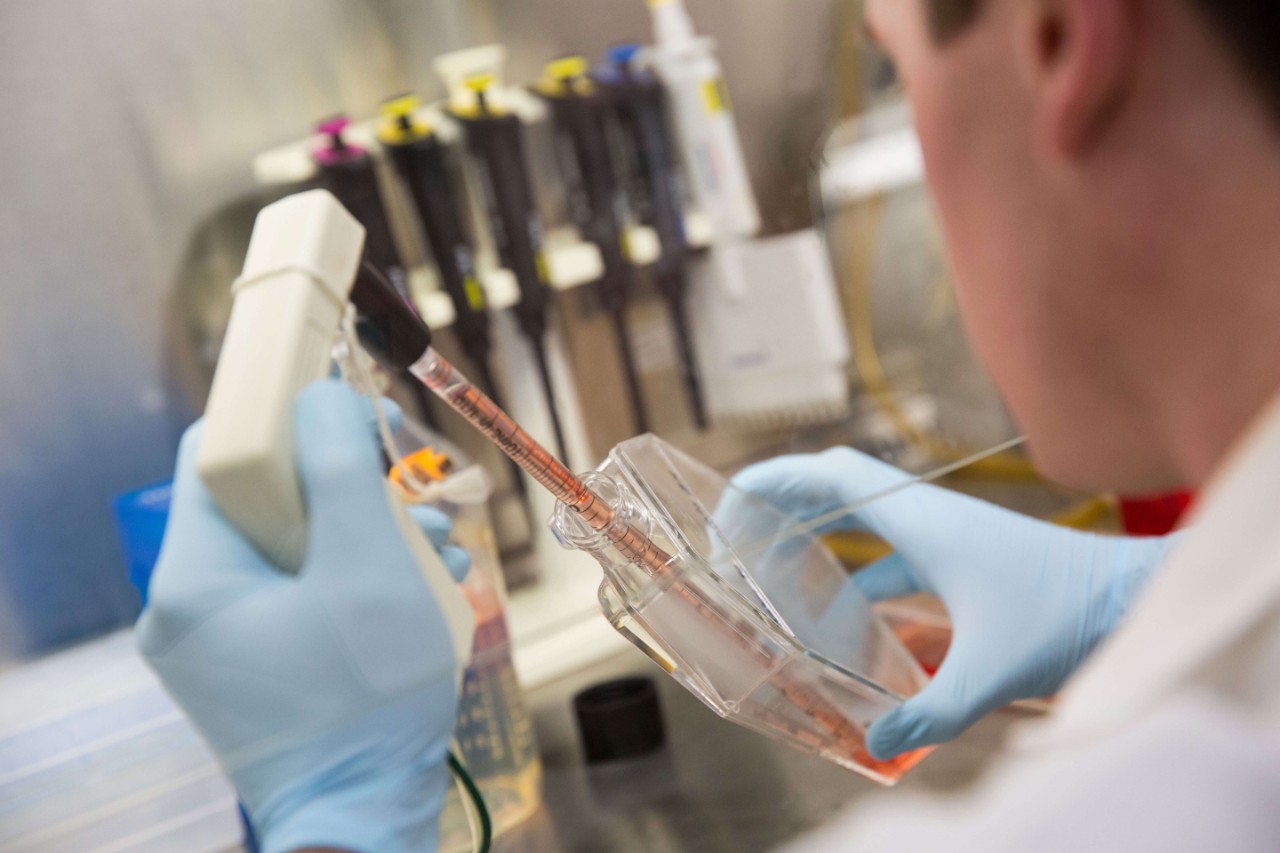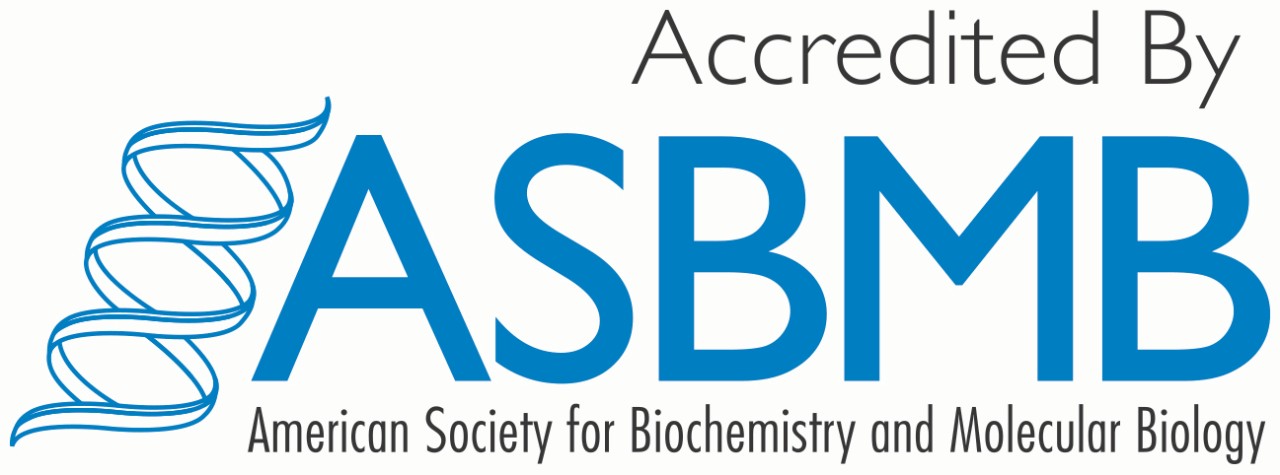
Applied Molecular Biology & Biotechnology

What is Applied Molecular Biology & Biotechnology (AMBB)?
Biotechnology uses knowledge obtained about organisms at the molecular level to inform diagnostic and therapeutic decisions, create new treatments using stem- and gene-therapies, produce novel biopharmaceuticals and help address global problems such as world hunger through genetically modified plants.
What Will I Learn in the AMBB Major?
The AMBB program emphasizes hands-on training and practical experience. Its locked-step curriculum will provide you with a solid foundation in the basic subjects from which biotechnology evolved. Faculty from academia and industry will give you a broad perspective of biotechnology’s applications and possibilities. Integrated into the curriculum are required practical internships, where you will gain additional experience in real world laboratory settings.
What is Unique About This Program?
The AMBB major is significantly different from other basic science programs in that it will provide you with a foundation in the basic biotechnology laboratory skills set as well as a solid basic science background. With a hands-on, competency based curriculum, you will complete the AMBB major and be able to “hit the ground running” as an entry-level scientist.
UD’s AMBB program is accredited by the American Society for Biochemistry and Molecular Biology at its highest level of accreditation.
What Can I Do with a Degree in AMBB from UD?
With a combination of academic preparation and work experience, you will be eligible to sit for the certification examination in molecular biology offered by the Board of Certification of the American Society for Clinical Pathology and be prepared to work in a wide variety of biotechnology-related settings. Recent graduates have found work in biopharmaceutical, hospital, biotherapeutics, and related industries. Others have gone on to advanced degrees at leading research and professional programs.
The AMBB major culminates in the awarding of a bachelor of science degree. Students enter the University as freshmen or transfer students with a declared interest in applied molecular biology and biotechnology (AMBBI) for the purpose of advisement and progression toward the AMBB-BS major. Consideration for admission to the major at the end of the sophomore year is based on the following criteria:
- Minimal grade point index of 2.90 for the first 4 semesters
- Minimal grade point index of 2.00 for specific prerequisite courses in biology and chemistry
- Completion of at least 60 credit hours, including the prerequisite science courses
Approximately 36 students are admitted each year, resulting in a low student-to-instructor ratio in the AMBB student laboratory courses. The first two years provide pre-professional courses in the basic sciences and liberal arts. The third and fourth years are an integration of professional and clinical courses. Students receive clinical experience during their senior year at three or more of our clinical laboratory affiliates.
Applied Molecular Biology & Biotechnology at the University of Delaware: youtube.com/watch?v=TCue58qnpPU

